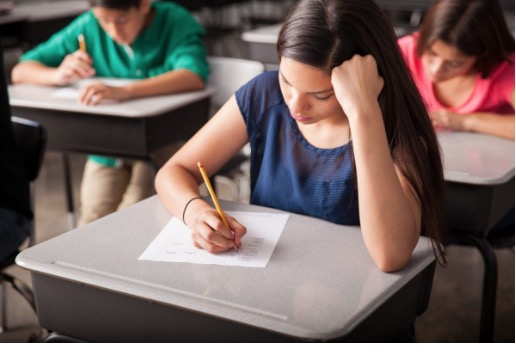CommentsEDUCATION - California’s Department of Education has finally acknowledged the obvious: It is arbitrarily delaying the release of results from this year’s round of academic testing.
In years past, scores from the spring Smarter Balanced tests of academic achievement have been released in late summer or early fall, but this year, the department denied a request for statewide results even though it authorized individual districts to make their data available.
Why?
Mary Nicely, chief deputy state superintendent for instruction, told EdSource, a website devoted to California education issues, which had requested the data, that the numbers would be released as part of a “dashboard” that includes other “metrics” on how schools are performing.
“We are on track to release the data as we did last year. If we can come out sooner, we will,” she said. “We are not withholding anything; people are working hard to finalize the data.”
That doesn’t wash.
There’s absolutely no reason that data already given to school districts should not be made public now and included in the “dashboard” later.
It’s likely that the test results will show a sharp decline in the abilities of California’s school children in basic skills, such as reading and math, due to the state’s shutdowns of schools during the COVID-19 pandemic.
State officials probably want to sugarcoat the bad news by delaying it until after the Nov. 3 election and combining it with other material that would dilute its importance. Tony Thurmond, the state schools superintendent, will be on the ballot along with Gov. Gavin Newsom and other Democratic officeholders and while all are favored to win re-election, bad news on schools would be embarrassing.
We know that the post-pandemic test results are likely to be disappointing. That’s been the pattern in other states. Los Angeles Unified has already released its quite negative test results, reversing about five years of gradual progress in the state’s largest school system.
In LA Unified, about 72% of students did not meet state standards in math, five percentage points higher than pre-pandemic testing. In English, 58% were subpar, two points higher.
“The pandemic deeply impacted the performance of our students,” said LA Unified Supt. Alberto Carvalho. “Particularly kids who were at risk, in a fragile condition, prior to the pandemic, as we expected, were the ones who have lost the most ground.”
If LA Unified had enough guts to tell its voters and parents the harsh truth, there’s no valid rationale for Thurmond not to do so for the entire state.
After its request for statewide results was denied, EdSource pressed the issue with a letter from its attorney requesting reconsideration.
“EdSource considers delay tantamount to denial as it effectively robs the public of its vital role in overseeing the CDE (Department of Education) and individual districts and in holding both accountable to its students and the public. This is especially important during what continues to be one of the most challenging and impactful times to our educational system due to the COVID pandemic,” EdSource attorney Duffy Carolan wrote.
EdSource’s letter told the Department of Education that it “cannot identify any ‘public’ interest in non-disclosure that could justify its denial position, let alone an interest that ‘clearly outweighs’ the substantial public interest in access to this information.”
This is not only a politically tinged education issue but a major test for the state’s Public Records Act, which allows public agencies to withhold information only under extreme circumstances. If records can be withheld for obvious political purposes in this case, the Public Records Act might as well be junked entirely.
(Dan Walters has been a journalist for more than 60 years, spending all but a few of those years working for California newspapers. He is a columnist for CalMatters where this story was featured.)
















